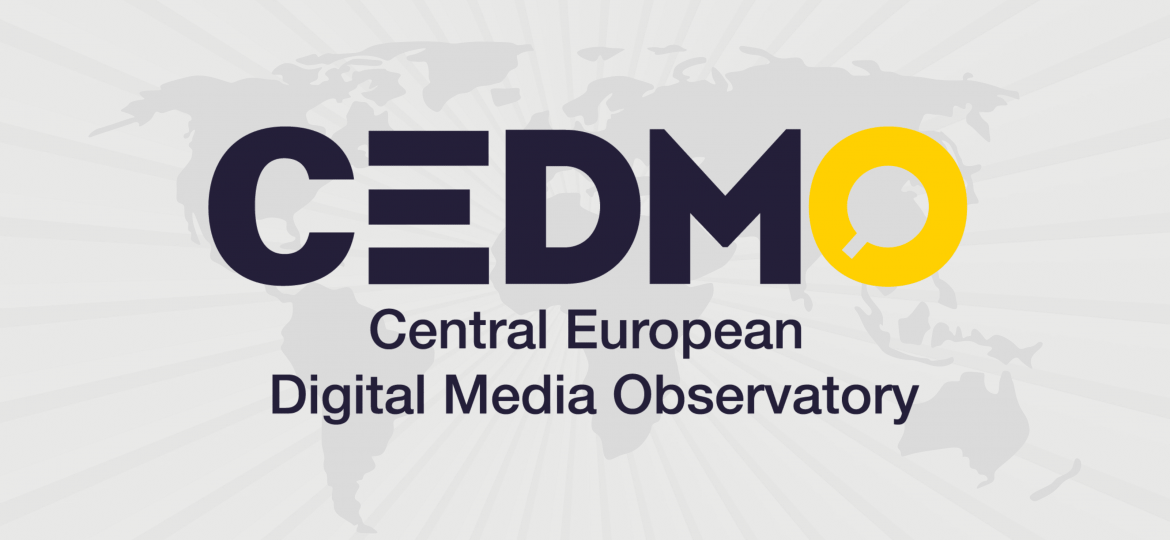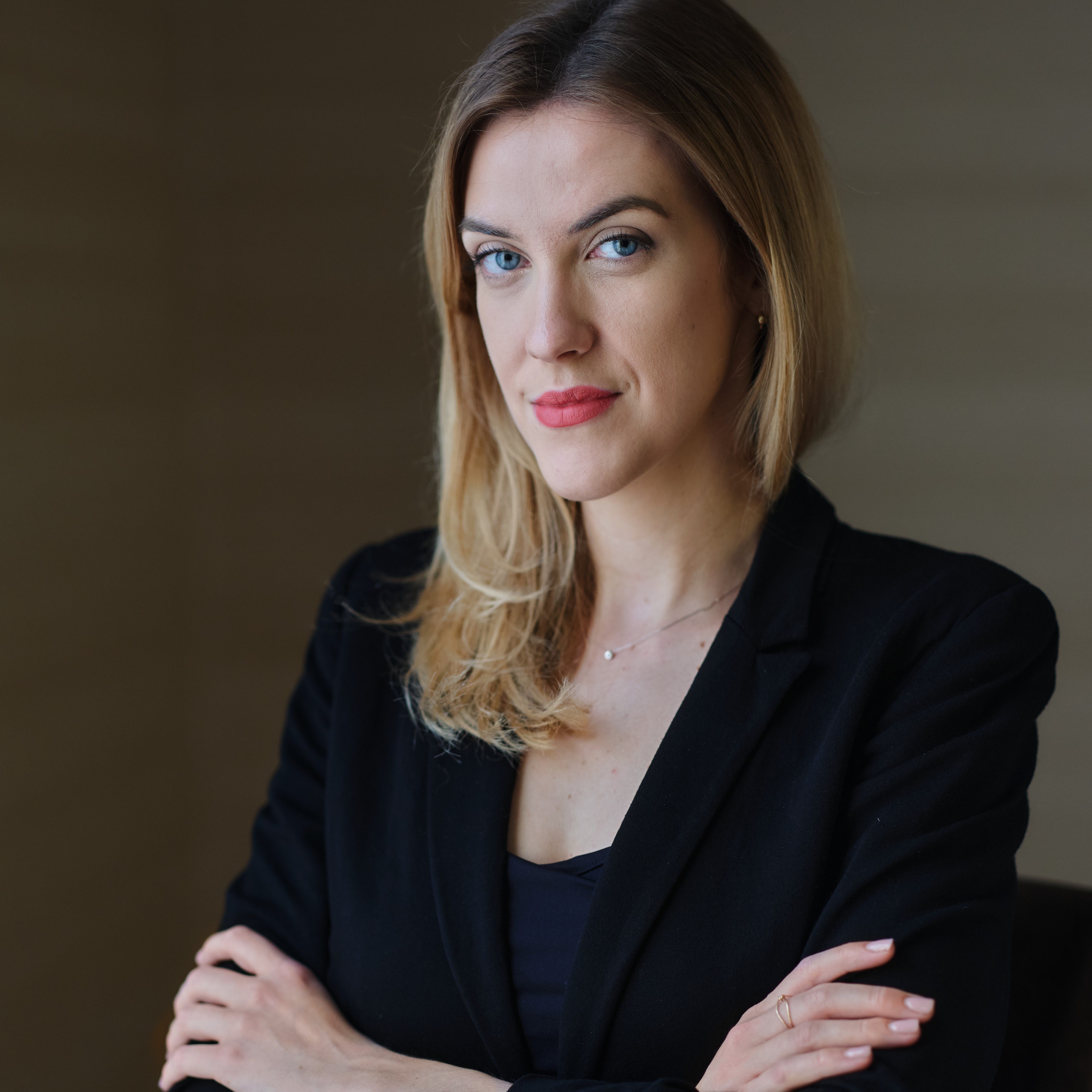
Thirteen organizations from six European countries have joined forces to expand the international multidisciplinary consortium Central European Digital Media Observatory (CEDMO), which has been operating in the Central European region since October 2021 under the leadership of Charles University. The gathering of fact-checkers, social science and technology researchers, investigative journalists working on publicly available information verification (OSINT), media and media literacy experts will address the processes and implications of digital transformation, including the emergence of generative artificial intelligence.
The consortium aims to analyze and understand the impact of digital transformation on society. The activities include identifying, investigating and prioritizing the main sources and causes of adverse information phenomena and disruptions in Central Europe (especially in the Czech Republic, Slovakia and Poland) in order to propose short and long-term measures and recommendations that will enable civil society, public institutions and the private sector to respond to the declining trust in key institutions and that will also help society to resist the increasing impact of false and distorted information.
 “The rapid development of technology brings with it a number of new challenges that we need to prepare for, and it is, therefore, essential to look for solutions across a range of disciplines. The global reach of information, the decline in trust in real texts, sounds, photos and videos as a result of the use of new artificial intelligence tools, as well as the tense geopolitical situation and the influence operations of powers on the territory of foreign states require approaches that take advantage of the synergies of international cooperation. We are glad that thanks to the high expertise of our researchers and the trust of our partners and supporters, we can participate in building the resilience of democratic societies against the negative impacts of digital technologies,” says Milena Králíčková, Rector of Charles University.
“The rapid development of technology brings with it a number of new challenges that we need to prepare for, and it is, therefore, essential to look for solutions across a range of disciplines. The global reach of information, the decline in trust in real texts, sounds, photos and videos as a result of the use of new artificial intelligence tools, as well as the tense geopolitical situation and the influence operations of powers on the territory of foreign states require approaches that take advantage of the synergies of international cooperation. We are glad that thanks to the high expertise of our researchers and the trust of our partners and supporters, we can participate in building the resilience of democratic societies against the negative impacts of digital technologies,” says Milena Králíčková, Rector of Charles University.

The existing eight organizations of the consortium will be joined by five more. Among the academic partners, apart from Charles University, the Polish University of SWPS will continue to operate in the hub and will focus on the analysis of disinformation campaigns and their impact on democracy and the economy. “Disinformation is a very complex and dynamically changing phenomenon, therefore continuous research on it is extremely important. The research in the next stage of CEDMO project will aim to identify the main disinformation narratives in Poland, the Czech Republic and Slovakia: their semantic structures and rhetoric as well as their impact on the society,” says Professor Karina Stasiuk Krajewska from SWPS.
 Fact-checking will be provided by the international agency Agence France-Presse (AFP), the Czech Demagog.cz, the Slovak Demagog.sk and the Polish Demagog.pl. Their activities will be expanded to include the verification of information using publicly available sources (OSINT), which will be carried out by Bellingcat (based in the Netherlands). “Unlike classical investigative journalism, in which a journalist’s findings are based on sources that often insist on their anonymity, Bellingcat’s method has been based on transparency and openness in publicly available sources since its inception,” says Eliot Higgins, the founder of Bellingcat, whose investigation results have already been used in several court cases, when explaining the principles of Bellingcat’s work. He then proceeds to explain the role of his team in the consortium: “Bellingcat’s investigators, together with AFP reporters and fact-checkers, will focus on an in-depth investigation into the consequences of the war in Ukraine. By engaging specialists with a high level of expertise from different backgrounds and different media — both locally and globally, we will support the neutrality and impartiality of the investigative inquiry.”
Fact-checking will be provided by the international agency Agence France-Presse (AFP), the Czech Demagog.cz, the Slovak Demagog.sk and the Polish Demagog.pl. Their activities will be expanded to include the verification of information using publicly available sources (OSINT), which will be carried out by Bellingcat (based in the Netherlands). “Unlike classical investigative journalism, in which a journalist’s findings are based on sources that often insist on their anonymity, Bellingcat’s method has been based on transparency and openness in publicly available sources since its inception,” says Eliot Higgins, the founder of Bellingcat, whose investigation results have already been used in several court cases, when explaining the principles of Bellingcat’s work. He then proceeds to explain the role of his team in the consortium: “Bellingcat’s investigators, together with AFP reporters and fact-checkers, will focus on an in-depth investigation into the consequences of the war in Ukraine. By engaging specialists with a high level of expertise from different backgrounds and different media — both locally and globally, we will support the neutrality and impartiality of the investigative inquiry.”
 Tools to simplify and streamline the work of fact-checkers and to detect deepfakes will be developed and implemented by three technology entities; the Czech Technical University in Prague (CTUT), the Kempelen Institute of Intelligent Technologies (KInIT) in Slovakia and the Athens Technology Center (ATC) in Greece. “For images, we will focus on artifacts and features of some of the most commonly used generators. For videos, the detection of fake or altered data will rely on inconsistencies in optical flow between individual frames and the mismatch between the size of the motion and the local blur of the image,” explains Professor Jiří Matas from the Faculty of Electrical Engineering at the Czech Technical University in Prague.
Tools to simplify and streamline the work of fact-checkers and to detect deepfakes will be developed and implemented by three technology entities; the Czech Technical University in Prague (CTUT), the Kempelen Institute of Intelligent Technologies (KInIT) in Slovakia and the Athens Technology Center (ATC) in Greece. “For images, we will focus on artifacts and features of some of the most commonly used generators. For videos, the detection of fake or altered data will rely on inconsistencies in optical flow between individual frames and the mismatch between the size of the motion and the local blur of the image,” explains Professor Jiří Matas from the Faculty of Electrical Engineering at the Czech Technical University in Prague.
 Mária Bieliková, founder of the KInIT research institute, adds: “At the Kempelen Institute, we will research and develop solutions that use artificial intelligence to identify, create and disseminate trusted information, especially in the form of text. We will use large-scale language models and specialised datasets to design our methods.”
Mária Bieliková, founder of the KInIT research institute, adds: “At the Kempelen Institute, we will research and develop solutions that use artificial intelligence to identify, create and disseminate trusted information, especially in the form of text. We will use large-scale language models and specialised datasets to design our methods.”
Already in the first phase of the CEDMO project, experts from KInIT and CTU managed to test and develop four AI tools to support fact-checking, which are helpful in several stages of the work of fact-checkers and journalists. These will continue to be developed. The first tool helps with selecting news in the online space worthy of verification. The second can extract specific claims from verified texts. The third tool helps eliminate duplicate verification of the same report by multiple fact-checkers to avoid wasting capacity. The fourth tool can search for articles that contain factual information to verify a specific claim.

The consortium’s media literacy activities, strategy and communication will be primarily the responsibility of the Polish research institute NASK, the international think tank Globsec and the Slovak PR agency Seesame. “Central European countries, and Slovakia in particular, are characterized by a significant susceptibility to disinformation and a low resistance to manipulative narratives, as confirmed by our research. At the Center for Democracy and Resilience, we have extensive expertise on the impact of disinformation and the harmful influence of non-democratic countries on our society, and we use this knowledge to design strategies to minimize their negative impact. We will primarily leverage our expertise to build the resilience of the public sector against disinformation and hybrid threats. In addition, we will participate in the meetings of the European Digital Media Observatory and represent CEDMO in the meetings of the working groups for the EU Code of Practice on disinformation,” says Dominika Hajdu, Director of the Centre for Democracy and Resilience at GLOBSEC.
CEDMO cooperates and coordinates with the European Digital Media Observatory (EDMO) and its regional centres across the EU. The Hub’s activities are supported by funding from the European Commission.


